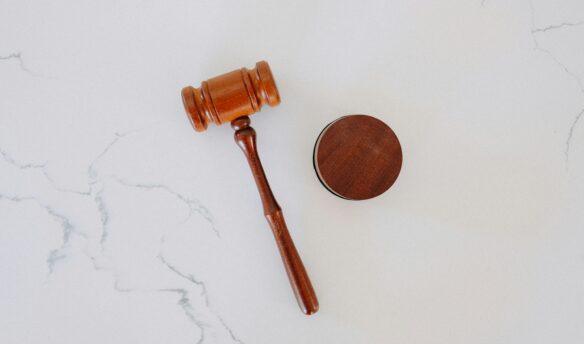Dwindling stockpiles: a coffee mystery. Plus, Starbucks announced wage increases and using coffee, and we know alcohol and coffee can disrupt sleep patterns—but do they cancel each other out?
‘Starbucks Increases US Hourly Wages and Adds Other Benefits for Non-union Workers’ – via NPR
After a record-breaking fiscal year, in which the company made $36 billion in revenue, Starbucks is increasing wages and benefits for its US workers. Well, slightly, depending on their circumstances. It’s complicated.
All workers at company-owned stores will get a 3% pay rise, while those who have worked for the brand for 2-4 years will receive a 4% increase for unionized and non-unionized staff. Employees who have worked for Starbucks for 5+ years will receive 5%, but “since that’s a new benefit, it must be negotiated with Workers United and is therefore not available to unionized stores,” NPR reports. The union said it will file an unfair labor practices claim with the National Labor Relations Board in response, noting in a statement that “withholding benefits from unionized stores is against the law.”
As well as the pay raise, Starbucks will shorten the time an employee needs to work for the company to earn vacation days from one year to 90 days, a benefit that will also not be available to unionized stores.
In October 2023, an NLRB judge ruled that pay and benefits increases that only went to non-unionized workers were illegal. As in the October case, Starbucks again argues that it cannot raise wages for unionized stores due to federal law prohibiting them from altering benefits during the collective bargaining process, a provision the union has offered to waive in the past.
An analysis by Reuters notes that, aside from the raises for those who have worked for the company for five years, the pay increases don’t measure up to national averages. The Bureau of Labor Statistics reports that worker pay has increased 4.1% over the last 12 months. By further comparison, new Starbucks CEO Laxman Narasimhan’s pay packet could be worth over $28 million.
‘Traders Move Coffee Around to Hide Aging Beans for the Last Time’ – via Bloomberg
Welcome back to Coffee Inventory Watch, where we check in on what’s happening at coffee warehouses monitored by the Intercontinental Commodity Exchange, or ICE.
While the coffee commodity market is complex and opaque, what happens in ICE warehouses can offer a window into what’s happening in the industry. A lot of how the industry is doing can be predicted by how much coffee ICE is holding in their warehouses.
ICE coffee stockpiles dropped to their lowest levels since 1999—and by 20% in one month alone. But rather than indicating rising demand or falling supply, a report by Bloomberg speculates that the real reason has more to do with the imminent closure of a “legal but misleading” loophole.
For years, sellers would remove their older coffee from the exchange and resubmit it to a warehouse, avoiding an “age penalty” designed to discourage extended coffee storage. Old coffee would appear on the exchange to be sold as new, which Bloomberg says “led to roasters receiving older-than-expected beans and obscured the true volume of coffee in the market.” Beginning December 1, 2023, this loophole will close, and new rules will prohibit such shenanigans.
While it’s impossible to know definitively whether the pull-and-resubmit gambit is the reason for the falling stockpiles, the article points out that coffee supplies have increased lately, with Brazil in particular experiencing a plentiful harvest. “The only ones who have any incentive to take the coffee off the board and put it back are the owners,” consultant Judy Ganes told Bloomberg, referring to the coffee sellers who trade on the exchange. “The owners of the coffee know that they can stop the clock running on it and set the odometer back to zero.”
Read the full story here or via Yahoo! Finance here.
More News
‘Royal Coffee Releases the ‘World History and Geography of Arabica Cultivars” – via Daily Coffee News
‘Brazil Says EU Deforestation Rules Hamper Mercosur Trade Deal Negotiation’ – via Reuters
‘There’s An Espresso Martini Perfume Now‘ – via Sprudge
‘New European Trade Show CoHo Expo Coming to Berlin in 2024‘ – via Daily Coffee News
‘Fairtrade to Expand Deforestation Monitoring Through Partnership with Satelligence‘ – via Global Coffee Report
‘The 2023 CafeShow Returns To Seoul, South Korea This Week‘ – via Sprudge
‘Cup of Excellence Coffee Competition Adds ‘Experimental’ Category in Brazil’ – via Daily Coffee News
‘SCA Announces Newest Developments in Coffee Value Assessment’ – via Global Coffee Report
Is Coffee Good For You?
Coffee impacts sleep. Alcohol also affects sleep. But to what degree? And does combining them increase the disruption? Researchers at the University of Washington and the University of California, Berkeley, set out to investigate in a real-world environment.
Previous research has studied what is known as the “coffee cycle,” wherein morning tiredness leads to caffeine consumption, which leads to poor sleep and morning fatigue the next day, leading to more caffeine consumption and so on. Similarly, there is an abundance of research linking alcohol consumption to poor sleep.
Researchers chose a small group of financial traders as the subjects because it is a profession “where degraded sleep quality is known to have a deleterious impact on performance, and the combined consumption of alcohol and caffeine is common.” The study, published in PLOS ONE, asked the traders to keep a daily diary of their caffeine and alcohol consumption during a six-week period. Unsurprisingly, they found that caffeine reduced the quantity of sleep—by ten minutes per cup of coffee consumed the previous day—but not the perceived quality, while alcohol reduced the quality by 4% per drink.
The researchers expected the two effects to combine into a demonstrably worse sleep experience, but that’s not what happened—at least at first. “Compared to the nights when you might have one or the other, we thought we were going to see additional decline in subjective sleep quality or sleep duration,” said lead author Frank Song from the UW Department of Psychiatry and Behavioral Sciences. “But actually, that interaction effect was the opposite of what we expected and ended up having an effect of offsetting each other’s negative impact on quality or quantity. And this was very intriguing to us.”
Eventually, the researchers found that “while there may be greater alertness in the short term, it creates a sleep-state misperception contributing to continued use despite negative effects on sleep,” Song said. Some participants began self-medicating with caffeine to counteract the alcohol. Because they didn’t perceive a decrease in sleep quality, this suggests “a mismatch in perception that may contribute to continued alcohol and caffeine use despite negative effects on sleep.”
Beyond the Headlines
‘A Day in the Life of a Coffee Consultant’ by Brit Alexandria
‘I Hate Coffee Shop Loyalty Programs. Am I Wrong?’ by Ashley Rodriguez
‘What is Tritan Plastic? And Why Is So Much New Coffee Gear Made From It?’ by Liz Clayton














